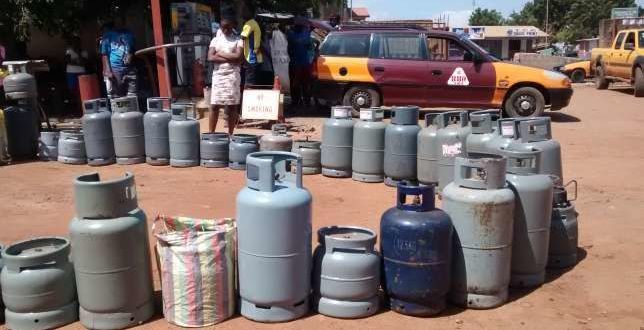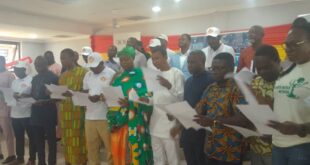The National Petroleum Authority (NPA) is set to commence the Cylinder Recirculation Policy in key parts of the country by the end of December this year.
The Chief Executive Officer of the Authority, Dr. Mustapha Abdul-Hamid, explained that development is expected to improve operations after a long wait amid the ban following the 2017 gas explosion which took place at Atomic.
Addressing participants at the Ghana International Petroleum Conference, The NPA boss said, “government is determined to make the cylinder recirculation model policy a reality. In the entire region of West Africa, it is only Ghana and Nigeria that still operate LPG filling stations and we should all work assiduously to eliminate the phenomenon of filling stations.
“On our part at the National Petroleum Authority we are determined that by the close of this year, we should start piloting the cylinder recirculation model at least in the southern part of our country with a determination to ensure that by 2030 we achieve an LPG penetration of 50 percent,” he added.
Meanwhile, the implementation of the Cylinder Recirculation Policy comes after the Association of LPG marketers had raised concerns over the decision which they say has been counterproductive for their businesses.
The Association, in August this year, embarked on a strike action to register its displeasure over government’s decision to place a ban on the construction of new LPG stations since 2017.
Before the strike was subsequently called off, after several meetings with government, the Association has on numerous occasions lamented they have not been properly sensitised on introducing the Cylinder Recirculation Policy.
“You need to ensure that the current players in the industry are properly taken care of. You need to ensure that the players who have built the industry over the years are taken care of in terms of trying to rope them in properly so they drive and own the policy,” Vice President of the LPG Marketers Association of Ghana, Gabriel Kumi said.
“This industry as I’ve indicated has been built by indigenous Ghanaians and the private sector. So, if the government is coming up with a new policy, it’s important that government really equips us, takes us through and drags us along,” he is quoted by Citi Business News.
 Home Of Ghana News Ghana News, Entertainment And More
Home Of Ghana News Ghana News, Entertainment And More





